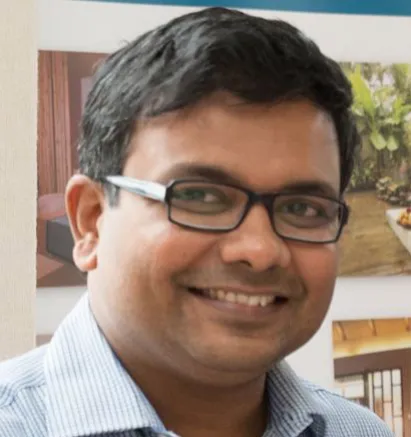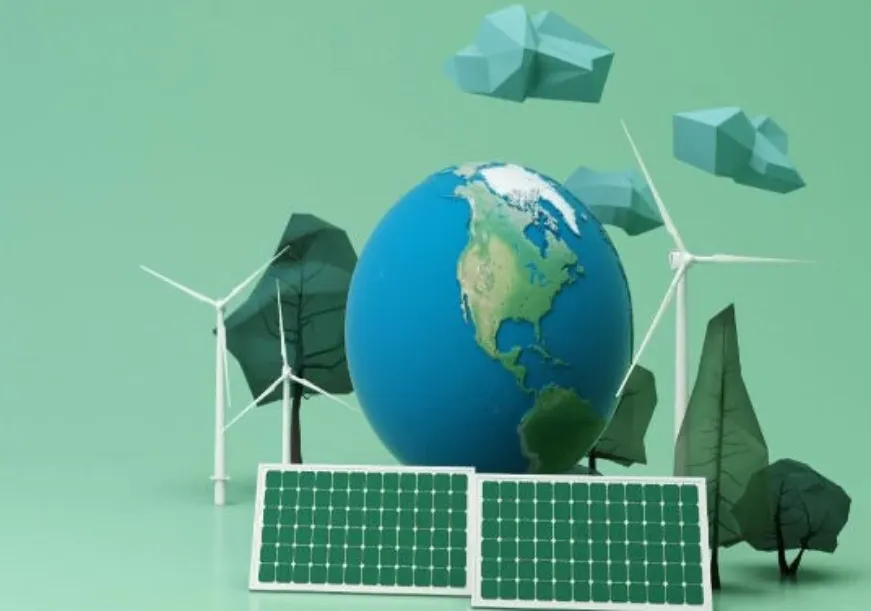
Introduction
Energy is an increasingly vital social, economic, environmental, and public health concern. Sustainable Energy for All, a partner organisation of the United Nations (UN), has emphasised that “Sustainable development is not possible without sustainable energy”. Worldwide, around 2.3 billion people still cook using solid fuels and in 2020 alone, an estimated 3.2 million deaths, including over 237,000 deaths of children under the age of five were due to household air pollution. This fossil fuel usage has disproportionately affected women in fragile settings. since time immemorial. Rapid technological advancements and a global mindset to secure energy for health in the broader context of climate change and Sustainable Development Goals (SDGs) are gaining traction and momentum. Mindset and momentum to change and secure health will be incomplete without a clear mandate and measurable indicators to monitor the desired outcomes. In advancing health, energy security is critical.
While we discuss the social determinants of health, it is imperative and now significant to also include energy security and energy determinants of health. Securing energy would not only influence health, but also the achievement of other SDGs such as SDG 1 (eradication of poverty), SDG 5 (achievement of gender equality), SDG 6 (access to clean water), SDG 8 (jobs security and economic growth), SDG 13 (combat of climate change), and SDG 17 (partnerships for the goals). Achieving SDG by securing safe, accessible, affordable, and sustainable energy will enable health security. In this regard, the General Assembly declared “The International Day of Clean Energy” on 26 January (resolution A/77/327) to increase awareness and catalyse action for a just and inclusive transition to clean energy.
Mindset and momentum to change and secure health will be incomplete without a clear mandate and measurable indicators to monitor the desired outcomes. In advancing health, energy security is critical.
Currently, the two main problems for energy security are its consumption contributing to greenhouse gas emissions and the lack of accessibility. Figure 1 depicts the consumption-based CO2 emissions per capita compared to the GDP per capita of countries and it suggests that the carbon emissions are higher in the countries with greater GDP per capita. This skewness is also due to the inequity of accessibility of energy among developed, developing, fragile, and conflict-affected situations (FCAS). Figure 2 depicts the clear divide in the percentage of the population from various income groups that have access to electricity. These two energy security issues become a concern for the health sector as the delivery of life-saving services for vulnerable people in energy-insecure regions of the world hampers the attainment of Universal Health Coverage. It is estimated that almost 1 billion people in developing countries are provided with healthcare services in facilities without reliable electricity or no access to it. This necessitates increased research and development in clean energy for health and accelerate energy transition to achieve SDG 7.2 (increase share of renewable energy).
Figure 1: Consumption-based CO2 emissions per capita vs GDP per capita
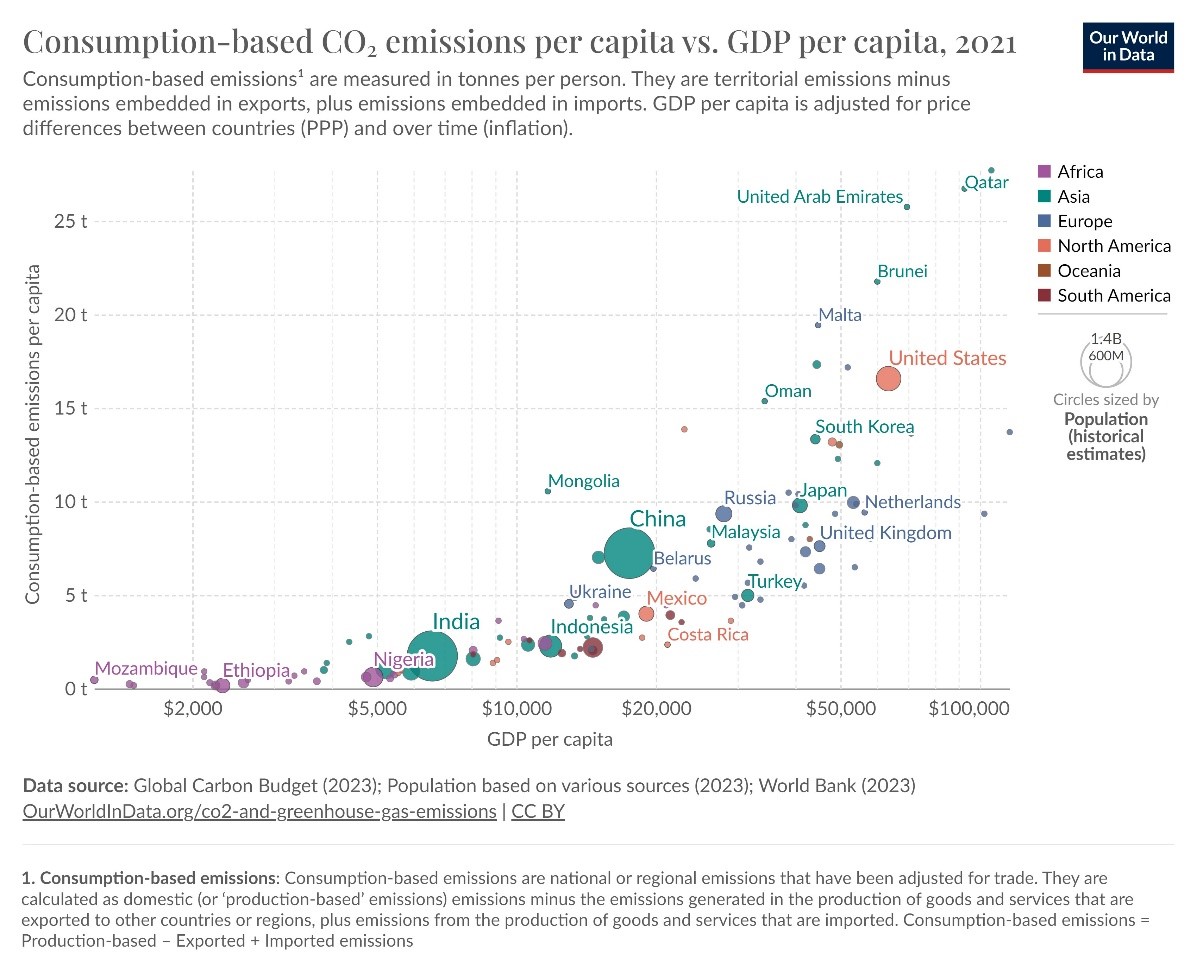
Source: Our World in Data
Figure 2: Access to Electricity (percentage of population)
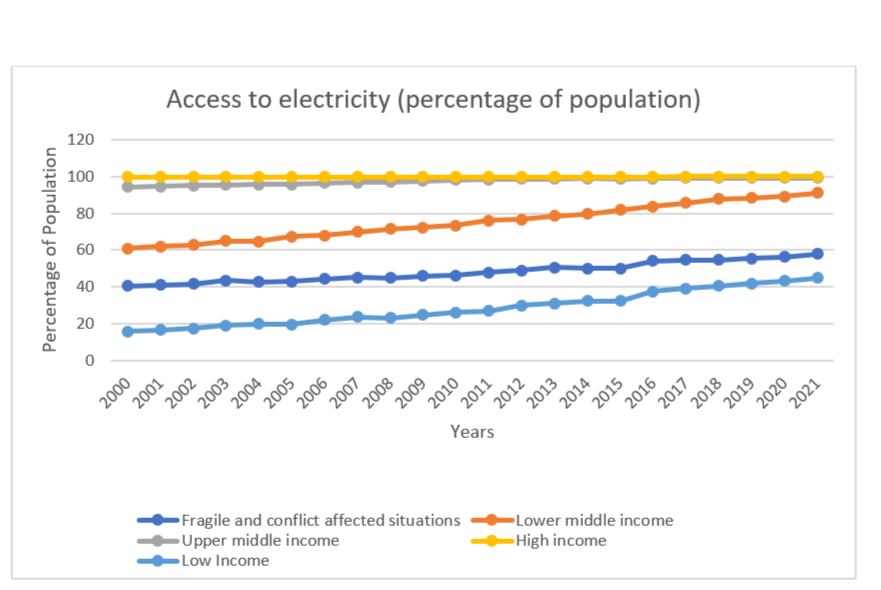
Source: World Bank
Challenges of energy transition
The clean energy transition faces numerous barriers despite its link to climate change being at the forefront of political discourse for the past two decades at least. The post-World War era has witnessed multiple geopolitical tensions ranging from export embargoes to all-out wars leading to heightened focus among states to ensure their energy security. These geopolitical events disrupt supply lines and infrastructure impacting energy security. On the other hand, energy security has a critical role in shaping geopolitics as it holds the ability to shape the balance of power and influence the political and economic stability of states.
The clean energy transition faces numerous barriers despite its link to climate change being at the forefront of political discourse for the past two decades at least.
The Global Director of Energy and Extractives at the World Bank opined that developing countries pay a triple penalty for energy transition due to the cost of electricity, access to clean energy projects and high dependency on fossil fuel. Further, it is observed that poor governance mechanisms, lack of targeted subsidies, inefficient planning, and inadequate capacity have paralysed the energy transition.Therefore, while the policies are being formulated toward low-carbon energy, the different stakeholders must align their decisions in a way that is inclusive and insulates fluctuations and shocks ensuring guaranteed access to energy.
While navigating through the perils of the energy transition, the continued demand and supply risks of energy will pertain and in turn, influence global politics. The change in energy systems could influence geopolitics as seen by fossil fuels. Like oil cartels and blocks, those states mastering clean energy technologies could see power and wealth concentration as the dependency would shift from ‘fossil fuels’ to ‘clean energy.’ Hence, it is important to develop collective measures that address concerns regarding technology, finance, and supply chain vulnerability of materials critical to clean energy technologies.
Way forward
The ongoing conflicts and competition among states demand a clean energy transition. A few notable commitments to accelerate the transition process are, The High-Level Coalition on Health and Energy and Health and Energy Platform of Action (HEPA) by the WHO, Sustainable Development Impact Meetings by The World Economic Forum, the Clean Energy Transition Programme by the International Energy Agency, the International Solar Alliance launched by India and France, and the Global Biofuel Alliance being one of the priorities during the Indian G20 presidency. During the recent COP28, it was the first time that the word ‘fossil fuel’ was used during the discussion of the transition to renewable energy for climate and health.
These global initiatives of the energy-health nexus along with the action of government, private players, and NGOs have been critical for effective sample collection and vaccine delivery. For instance, during COVID-19 the Solar Powered Portable Refrigerators played a critical role in administering more than 150,000 vaccines in remote terrains across India. This was possible with the help of the NGOs that provided manpower, the private sector that mobilised funding, and the Government institutions which enabled deployment. Despite the presence of such initiatives on energy and health security, the translation of the global commitments to compliance has been a challenge due to political and socio-economic uncertainty in FCAS countries.
Addressing the energy-consumption-related health impacts and the transition to renewable energy necessitates tailored solutions based on the context and the conditions rather than a one-size-fits-all approach. A shift from issue-specific solutions to system-oriented ones must take place to reach climate, energy, and health goals resiliently. The Rebound Model of Resilience is one of the approaches that can help identify, evaluate, and prioritise the available policy options to effectively address energy-health nexus concerns. The model examines the determination and solidarity of the commitments; control and agility of the capabilities; and resource and network of capital to have a resilient system. Figure 3 illustrates the adapted Rebound Model of Resilience in the context of making energy and health security resilient against adversaries.
Figure 3: Suggested framework for resilience of energy-health nexus
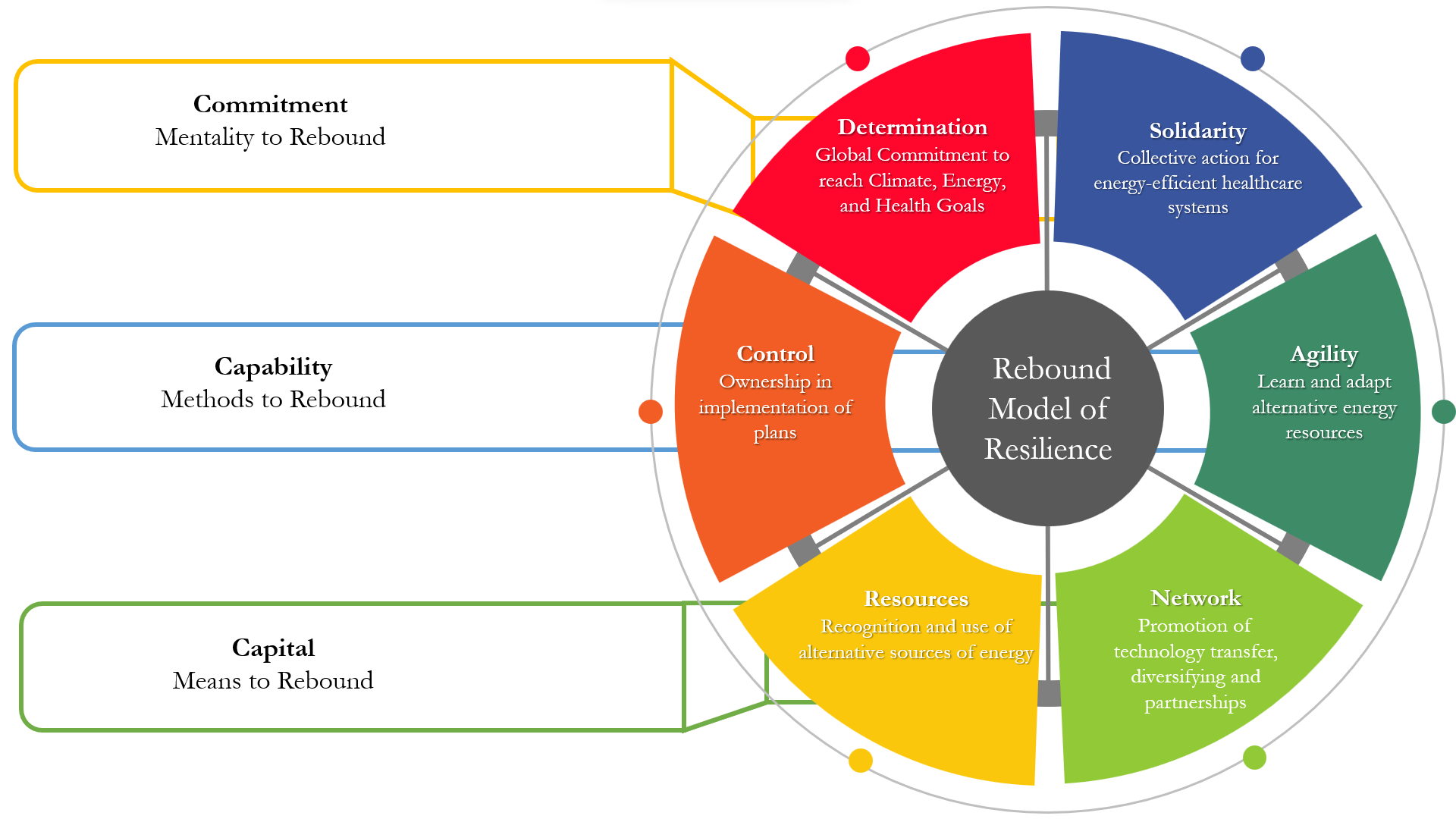

Source: Adapted from Rebound Model of Resilience
This model becomes vital for states and actors to look for means, methods, and mentality to rebound during adversary situations. For instance, as it is difficult for fragile and conflict-affected states to attract investment into renewable energy projects, initiatives such as the Peace Renewable Energy Credits (P-RECs) that provide funds and networks for developing renewable energy projects must be promoted. There is a need to enhance the capability among the Low- and Middle-income Countries (LMICs), FCAS, and Small Island Developing States (SIDs) to mitigate the effects of any threat of value chain vulnerabilities due to shifts in geopolitical dynamics. The determination and solidarity to commitments become vital as many developing countries face disadvantages in global cooperative mechanisms due to their resource constraints. The creation of ad hoc forums, initiatives, and learning from successful case studies could be effective in embracing strategies and advocating important partnerships to overcome barriers to global participation as seen in the case of the Climate Vulnerable Forum and Green Climate Fund. Therefore, promoting various stakeholders from local, national, regional, and global levels to build a resilient system that would accelerate the energy transition to address the energy-health nexus is the need of the hour.
Sanjay M Pattanshetty is Head of the Department of Global Health Governance at Prasanna School of Public Health Manipal Academy of Higher Education (MAHE) Manipal Karnataka India.
Aniruddha Inamdar is a Research Fellow at the Centre for Health Diplomacy Prasanna School of Public Health.
Kiran Bhatt is a Research Fellow at the Centre for Health Diplomacy Department of Global Health Prasanna School of Public Health Manipal Academy of Higher Education.
The views expressed above belong to the author(s). ORF research and analyses now available on Telegram! Click here to access our curated content — blogs, longforms and interviews.








 PREV
PREV
